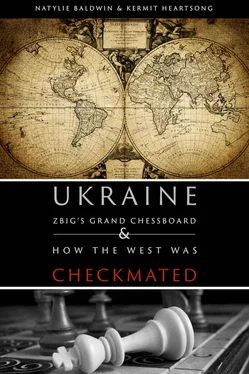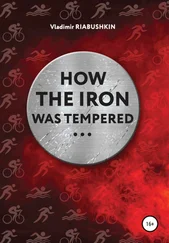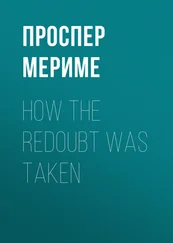Kermit Heartsong - Ukraine - ZBIG's Grand Chess Board & How The West Was Checkmated
Здесь есть возможность читать онлайн «Kermit Heartsong - Ukraine - ZBIG's Grand Chess Board & How The West Was Checkmated» весь текст электронной книги совершенно бесплатно (целиком полную версию без сокращений). В некоторых случаях можно слушать аудио, скачать через торрент в формате fb2 и присутствует краткое содержание. Год выпуска: 2015, Жанр: Политика, на английском языке. Описание произведения, (предисловие) а так же отзывы посетителей доступны на портале библиотеки ЛибКат.
- Название:Ukraine: ZBIG's Grand Chess Board & How The West Was Checkmated
- Автор:
- Жанр:
- Год:2015
- ISBN:нет данных
- Рейтинг книги:4 / 5. Голосов: 1
-
Избранное:Добавить в избранное
- Отзывы:
-
Ваша оценка:
- 80
- 1
- 2
- 3
- 4
- 5
Ukraine: ZBIG's Grand Chess Board & How The West Was Checkmated: краткое содержание, описание и аннотация
Предлагаем к чтению аннотацию, описание, краткое содержание или предисловие (зависит от того, что написал сам автор книги «Ukraine: ZBIG's Grand Chess Board & How The West Was Checkmated»). Если вы не нашли необходимую информацию о книге — напишите в комментариях, мы постараемся отыскать её.
Ukraine: ZBIG's Grand Chess Board & How The West Was Checkmated — читать онлайн бесплатно полную книгу (весь текст) целиком
Ниже представлен текст книги, разбитый по страницам. Система сохранения места последней прочитанной страницы, позволяет с удобством читать онлайн бесплатно книгу «Ukraine: ZBIG's Grand Chess Board & How The West Was Checkmated», без необходимости каждый раз заново искать на чём Вы остановились. Поставьте закладку, и сможете в любой момент перейти на страницу, на которой закончили чтение.
Интервал:
Закладка:
On July 16, 2014, the BRICS, to offset the extortive tactics of the West’s sanctioning regimes, founded a New Development Bank and funded it with $100 billion to be used as a money pool and an additional $50 billion to fund infrastructure projects (Ford 2016). Of course, the hard irony here is that had there been no putsch in Kiev sponsored by the West and no sanctions the New Development Bank may have been a few years off, if, indeed, it ever formed.
The New Development Bank is scheduled to begin making loans in 2016, under decidedly different terms than those provided by the IMF and World Bank. There will be no harsh austerity measures from the new bank and emerging nations will now have a choice of lenders. And so will begin the march away from the Western economic institutions, mandated austerity, and ostensibly the dollar, as alignment with a rising East takes center stage.
Other Eurasian-based organizations currently challenging Western hegemony are the Collective Security Treaty Organization (CSTO) and the soon-to-be Eurasian Economic Union.
NATO sought to checkmate the Russian king by attempting to take one more piece, the final piece, on Zbig’s Grand Chessboard: Ukraine. A trap was being set by the West in which it envisioned the Russian state completely surrounded on its western border, cut off from its only warm water port, and completely isolated from the world as a pariah state. Of course, pocketing Ukraine’s gold reserves, extracting its natural resources, and putting Ukrainians on a starvation diet via IMF restructuring, was to be yet another critical piece of the Russian chessboard sidelined.
The irony is that the Ukrainian coup d’é tat , as orchestrated by the West, served as the trip wire over which the West itself has tripped, and the successive leveling of sanctions have become the pit into which the West is even now still falling.
The West, via Ukraine, has made a geopolitical misstep of proportions so grand that it will shake the very foundation of the socioeconomic and political status quo. Further, the West has provided both Russia and China with a powerful incentive for forging a multipolar geostrategy and has prodded, via its actions, that they make haste in its attainment.
no gas for the eu
On December 1, 2014 Russia announced to the world that it had cancelled its South Stream pipeline project, which was scheduled to bring desperately needed natural gas to Europe by 2016. The reason cited for this rather momentous change in direction by President Putin:
We believe that the stance of the European Commission was counterproductive. In fact, the European Commission not only provided no help in implementation of [the South Stream pipeline], but, as we see, obstacles were created to its implementation. Well, if Europe doesn’t want it implemented, it won’t be implemented. We’ll be promoting other markets and Europe won’t receive those volumes, at least not from Russia. We believe that it doesn’t meet the economic interests of Europe and it harms our cooperation. But such is the choice of our European friends. (RT 2014)
The other “regions of the world” it turns out, would start with Turkey. President Putin announced to the world, at the selfsame meeting, that the South Stream project would, in fact, be diverted to Turkey instead or “Turk Stream.”
The underlying reasons for the cancellation of the South Stream pipeline can be clearly traced to US pressure on the various EU nations and Bulgaria, in particular, to terminate the pipeline and to the EU’s own Third Energy Package (TEP), which had been labeled by some as a “rent-extraction” device.
The TEP was adopted by the European Parliament in July 2009 and entered into force on September 3, 2009, two years after the South Stream project had been proposed and signed. The EU sought to retroactively apply conditions via the TEP, that favored the EU to the detriment of Gazprom, a Russian natural gas extractor. As explained by Pepe Escobar (2014) author and journalist for Asia Times Online :
The EC brilliant "strategy" revolves around the EU’s Third Energy Package, which requires that pipelines and the natural gas flowing inside them must be owned by separate companies. The target of this package has always been Gazprom — which owns pipelines in many Central and Eastern European nations. The target within the target has always been South Stream. (Escobar 2014)
However, the underlying reasoning behind the TEP is explained by Michael Hudson in his article, “Backfired! U.S. New Cold War Policy Has Backfired — And Created Its Worst Nightmare”:
The U.S. neoliberal plan has been to insist on non-Russian control of the pipelines that would carry Russian gas and oil to Europe. The idea is to use this pipeline as a tollbooth to siphon off the revenue that Russia had hoped to receive from Europe. (Hudson 2014)
What were the implications of the TEP in practical person-on-the-street terms? As Hudson states:
Imagine that the United States had a law that owners of buildings could not also own the elevators in them. This would mean that the owners of the Empire State Building, for instance, could not own their elevators. Some other investors could buy the elevators, and then tell the building’s renters or other occupants that they would have to pay a fee each time they rode up to the 40th floor, the 50th floor, the 60th floor, and so forth.
The result would be that instead of the landlord receiving the rental value of the Empire State Building, the elevator owner could demand the lion’s share. Without access, the building would be a walk-up and its rents would fall — unless renters paid the elevator tollbooth. (Hudson 2014)
In the end, the TEP was, indeed, a scheme by the EU to “carve out a rent-extraction opportunity to siphon off Russian gas revenue” (Hudson 2014). However, in a twist of irony on parallel with a Twilight Zone episode, it backfired wickedly.
What was initially hailed, at the time, by Western media as a defeat for Putin and thus Russia, with regard to South Stream’s cancellation, has been exposed for its unparalleled cynicism and for the devastating blow that it has leveled at EU energy security.
On January 14, 2015, EU negotiators arrived in Moscow in order to:
Pressure Russia to resurrect the canceled South Stream gas pipeline project and build it in accordance with the restrictive rules of the Third Energy Package. (Kettunen 2015)
The Gazprom response, however, was nyet (“no”). Instead Gazprom offered the following solution to its EU clients and would-be rent-extractors:
Gazprom will build the pipeline to Turkey and extend it to the Turkish-Greek border. The pipeline will end in a gas distribution hub near the EU border.
If the EU wants to buy gas, it will have to build a pipeline to Turkey at its own expense. It will also need to expand the gas transport capacity between its South European member countries — and do so under the constraints imposed by its own Third Energy Package. (Kettunen 2015)
But, of course, there’s more. The historical problem of the Ukraine siphoning off (stealing and extorting) gas paid for by EU nations would also come to an end after the completion of the new Turk Steam pipeline. Or as summed up by Aleksi Kuttunen in the article, “Gazprom Tells EU No Deal on South Stream Restart, EU Free to Get Russian Gas in Turkey”:
The final punch to EU arrogance was Gazprom's declaration that after the completion of the gas hub and the Turkish pipeline Gazprom will end all gas transit through Ukraine. Russian gas will only be available through Turkey!
The Ukrainian pipeline network will be used exclusively [to] supply gas to Ukraine. Gazprom based its decision on Ukraine's instability and the high transit risks. (Kettunen 2015)
Читать дальшеИнтервал:
Закладка:
Похожие книги на «Ukraine: ZBIG's Grand Chess Board & How The West Was Checkmated»
Представляем Вашему вниманию похожие книги на «Ukraine: ZBIG's Grand Chess Board & How The West Was Checkmated» списком для выбора. Мы отобрали схожую по названию и смыслу литературу в надежде предоставить читателям больше вариантов отыскать новые, интересные, ещё непрочитанные произведения.
Обсуждение, отзывы о книге «Ukraine: ZBIG's Grand Chess Board & How The West Was Checkmated» и просто собственные мнения читателей. Оставьте ваши комментарии, напишите, что Вы думаете о произведении, его смысле или главных героях. Укажите что конкретно понравилось, а что нет, и почему Вы так считаете.











